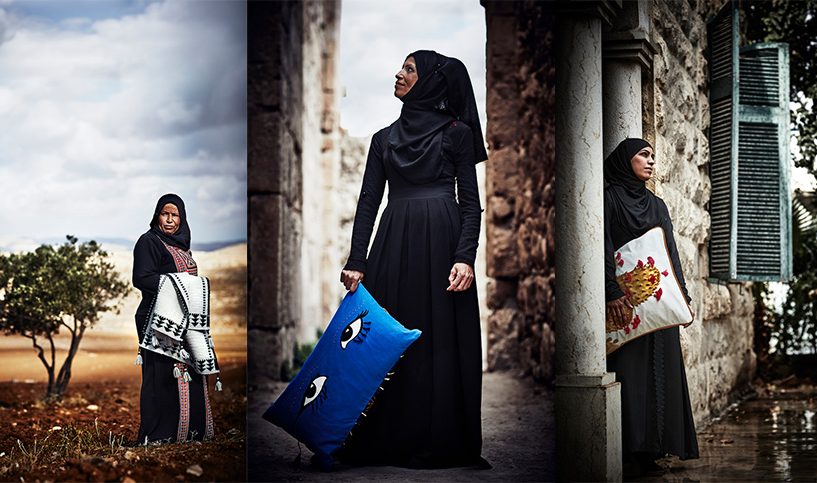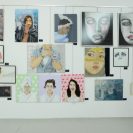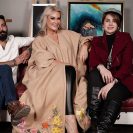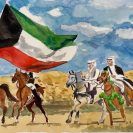IKEA’s aesthetic is unmistakable. It’s clean, and decidedly very Swedish. We were pleasantly surprised, however, when we walked into IKEA’s showroom and saw some seemingly desert and Arab-inspired cushions and rugs. The bright colors, intricate hand-stitched details and motifs were clearly Middle Eastern, and very intriguing.
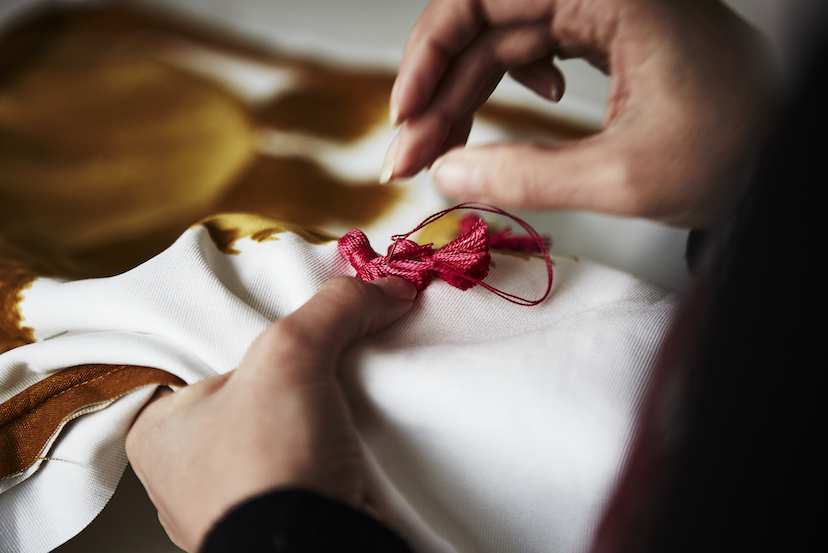
There is a story behind the new TILLTALANDE collection, which incidentally translates to appealing. And it truly is. It started in one of Jordan’s refugee camps, when people realized that one of the biggest obstacles in a refugee’s life is their inability to work, and to become fully re-integrated, in their host societies.
IKEA was determined to help, and in November of 2016 decided to begin purchasing from Jordan. IKEA’s Social Entrepreneur Initiative is a program that bridges gaps between people and cultures, shares ideas and creates a better everyday life for more of the many. The program partnered up with the Jordan River Foundation to help recruit and train refugee and local Jordanian women to embroider and weave on the looms.
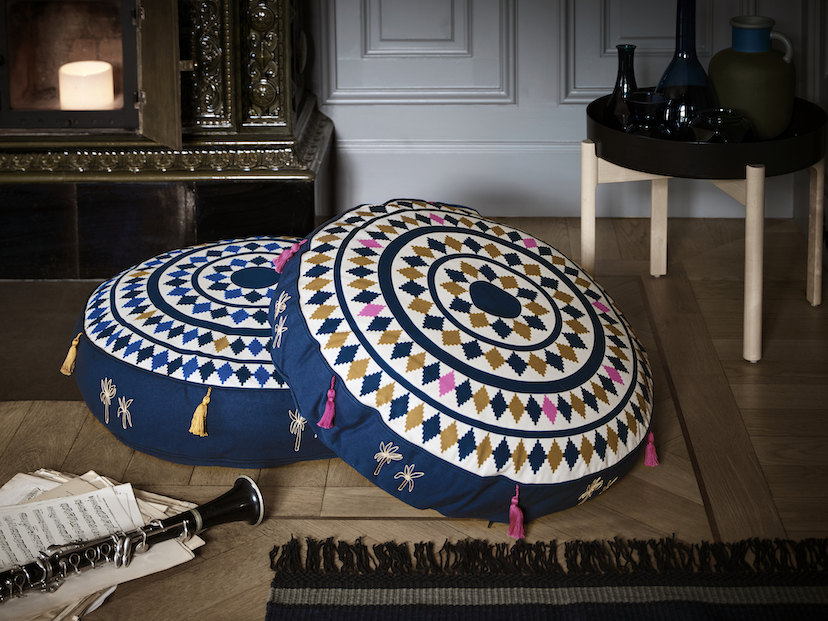
IKEA also managed the business and design processes to get the project up and running. One hundred women artisans worked to produce the first limited collection of handcrafted textiles. By 2018, the number of crafts people doubled to 200 and is expected to reach 400 by the end of 2020.
“We ́ve really had a flying start. This is just the beginning of a long-term partnership and the co-creation of great design while creating jobs for Jordanian locals and refugees. To see the collection come alive together with Jordan River Foundation and all the artisans feels wonderful and we hope our customers will enjoy it, says Ann-Sofie Gunnarsson, Partner Development Leader at IKEA of Sweden.
We were all touched by the mini-documentary playing in the display at the IKEA store. If you’re at the IKEA store, do make it a point to stop by and listen. You’ll find the installation right at the entrance as you walk into the showroom. We were totally moved by how the women involved in the project described how this opportunity has afforded them dignity, self-respect, income and a renewed purpose in life. All of which are qualities that not only women, but people in other parts of the world in general, take for granted on a daily basis.
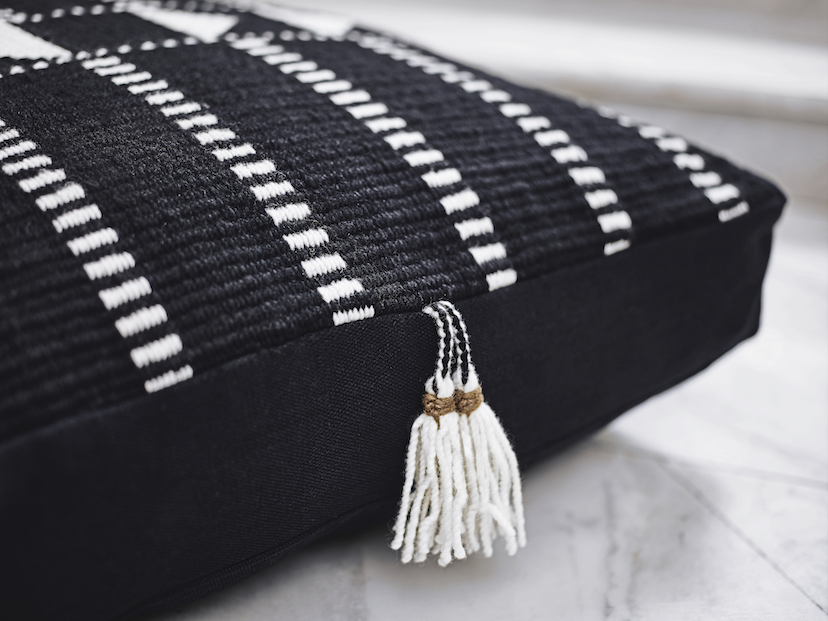
IKEA Jordan was the first store to launch the collection. IKEA Kuwait released the TILLTALANDE collection in March of 2019. And during the remainder of this year, the collection will be available in selected European and international markets, including cosmopolitan locations like New York. This arrives as a crucial, educational opportunity for people from all over the world to learn more about the daily struggles of life in a refugee camp, but more importantly, discover what the power of potential could produce. More products are being added to the collection over the coming months, further proving how the textile pieces are unique and are making a difference.
Intricate and unique embroidery is mixed with bold prints in the forms of cushions and various accessories. Motifs like the camel have hand embroidered saddles, the desert cactus flower features handmade tassels to represent the flower in bloom, as well as palm tree feature prominently in the designs. The color scheme is inspired by the land itself, with earthy tones and bursts of contrasting bright shades, striking a perfect balance between modern IKEA and traditional Jordan.
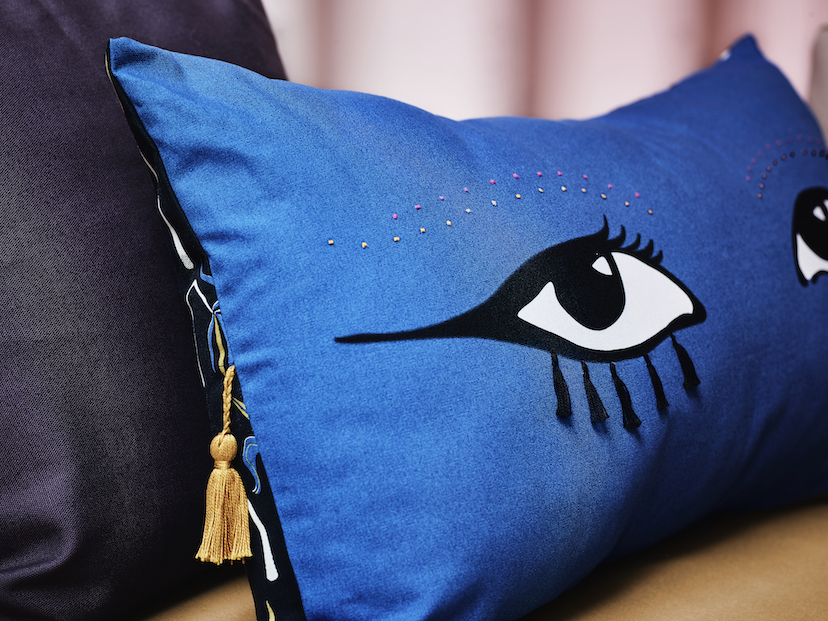
This has kept the essence of a handmade item while keeping production efficient enough for affordable items. The designs are Bedouin inspired, with simple elements that come from the stories that have been handed down across generations. In truth, it is a project that pays homage to a rich cultural heritage in the past and a tenacity that will carry its people to the future.
“Many of the gardens in Amman have massive cactus, you can’t miss them. Faridon Abida, designer at Jordan River Foundation, told me how they sometimes burst into yellow or pink blossom, We both loved the idea of using them in the collection, and the women artisans instantly connected with the idea”, says Paulin Machado, designer at IKEA of Sweden.
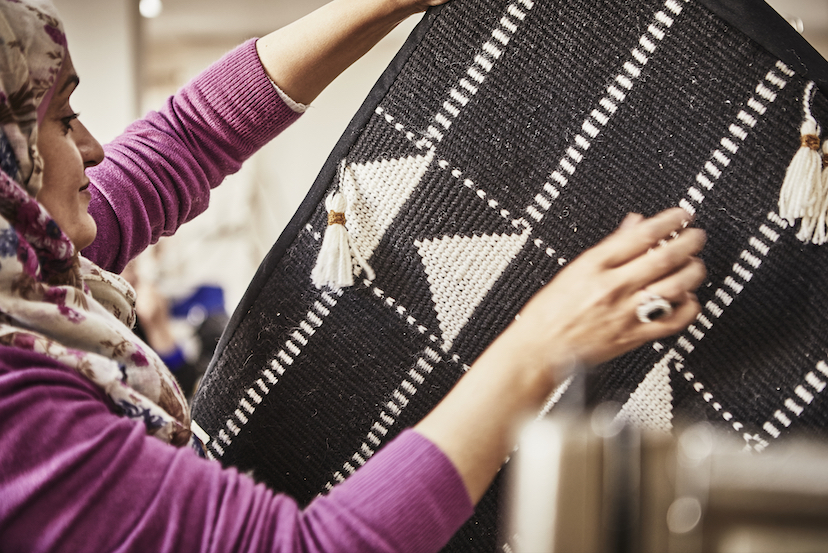
Perhaps the best testament to the importance and effectiveness of the program is what the women who are working with IKEA and the Jordan River Foundation say in their own words. Abeeh Almnajed, a Syrian refugee, said, “I spend all my free time helping my children with their homework. Thanks to this job I hope to be able to afford a better school.” On the other hand Tahani Al Khatib, an artisan originally from Palestine, expresses why it is so important ”Handicraft is not only a career, or a way to sustain one’s livelihood, it’s a lifeline.” Finally, Amneh Al Gawanmeh, a weaver at Bani Hamida weaving center, is proud of her heritage ”Weaving Bedouin rugs is a delicate art. I learned and inherited the craft from my mother. Every rug we weave is produced with passion and hard labor. It’s an ode to our heritage”.
For IKEA, the partnership has provided a great deal of inspiration, knowledge and partnership with skilled artisans, while still creating handmade products for customers. It is a double win for all parties involved and shows that companies can help communities in ways that are economically sustainable and viable.
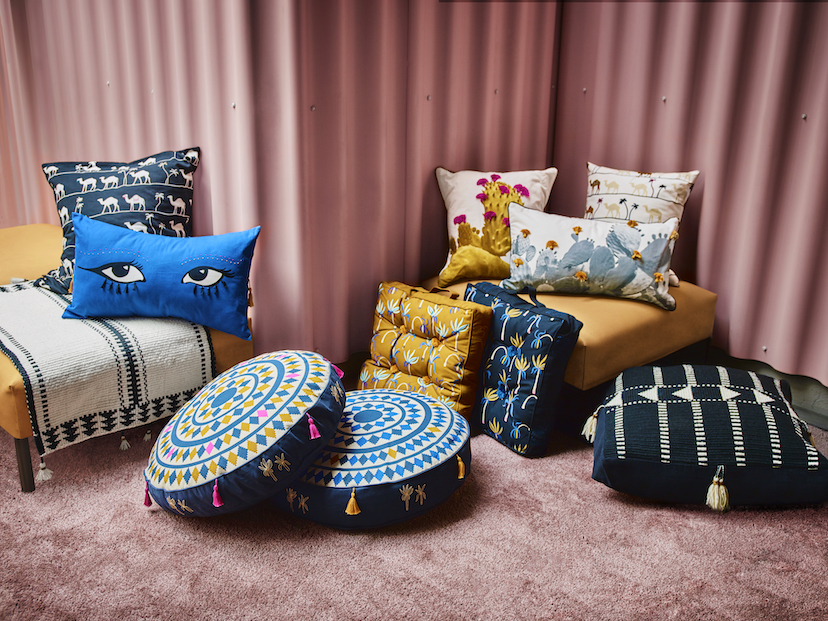
IKEA is located in the Avenues, Al Rai. For more information visit the IKEA Kuwait website, and follow them on Instagram @ikeakuwait to stay up to date.



